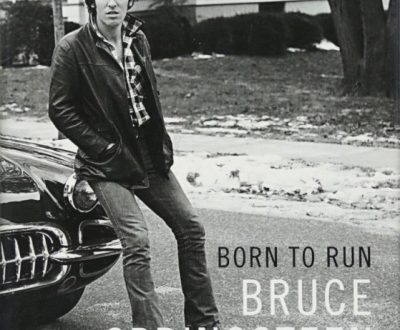There’s a feeling I get when I’m reading a novel and I know I’m in the hands of a master. No matter the destination, I know the journey there will be what stays with me long after I’ve shelved the book, or, since it’s a good one, probably loaned it to a friend. While I’m reading the masterpiece, the thought of putting it down makes me reevaluate my life’s priorities, and while I’m not reading it, I’m thinking about what deals I’ll need to negotiate to be able to be reading it.
This kind of experience doesn’t happen that often for me, coming across a book that makes me feel this humble and grateful upon finishing: A Prayer for Owen Meaney, Station Eleven, The Amazing Adventures of Kavalier and Clay, and Life of Pi are just a few that spring to mind. Jonathan Safran Foer’s Everything is Illuminated is another.
The premise is straightforward: A young author, Jonathan Safran Foer, travels to Ukraine searching for the woman who saved his grandfather during the Nazi occupation. While there, he’s helped by Alexander “Alex” Perchov, a young man fascinated with outdated American pop culture.
More times than I could count while reading (and re-reading) Everything is Illuminated, I wanted to stop and treasure its moments of beauty, pain, laughter, absurdity, love, light, darkness, hate, hope, and life. Foer performed feats of language, story, and narrative that had me simultaneously laughing, gasping, and breaking out my pen to copy the passages so I’d never forget them. But I knew if I stopped every time, I’d never finish the book.
Feats like this one:
(Alex, in a letter to Jonathan) “You are the only person who has understood even a whisper of me, and I will tell you that I am the only person who has understood even a whisper of you.”
Simple? You bet. But in the context of the story, it’s a line that brought me to a full stop and made me catch my breath and rethink everything that had gone before. And it’s one of many.
Back in 2005, I saw the film version of Everything is Illuminated, and it immediately became one of my favorites, but people in the know told me the novel was much better. Loving the film as much as I did, I found this hard to imagine, but it turns out they were mostly right. I’ll go on record as saying is that the book and film are different.
For one thing, in the film, it’s easy to assume Jonathan Safran Foer is the protagonist of the story. He is, after all, the one on a quest, just as he is in the novel. The book, however, makes it clear that this story belongs to Alexander. Alex’s passages, with their faulty yet bold grasp of English, are not only funny, touching, and brilliant, but they’re where the heart of this story ultimately resides.
It’s tempting to dismiss Alex’s problematic English as silly or a cheap gag, but there’s much more to it than that. Often, his linguistic difficulties shed light on truths that would otherwise remain obscured, forcing both Jonathan and the reader to truly examine the meanings of words and the ideas they represent, words and meanings he–and we–may take for granted.
In another of his letters, Alex passes on word that his mother has asked about Jonathan:
“She said, ‘And what about the troublemaking Jew?’ I informed her that you are not troublemaking, but a good person, and that you are not Jew with a large-size letter J, but a jew, like Albert Einstein or Jerry Seinfeld.”
It’s no accident that Alex signs his letters to Jonathan “Guilelessly, Alexander.”
There are some significant differences between the book and the film. The novel’s series of magical shtetl episodes–the ones “written” by Jonathan that read like a weird, beautiful mishmash of Kurt Vonnegut and Michael Chabon–give the reader additional insight into the history of the mysterious Ukrainian village of Trachimbrod, much of which was omitted from the film. This, in turn, gives more explanation into why Alex’s grandfather in the film reacts the way he does to what they find in Trachimbrod.
Still, the film is a beautiful work in itself, visually and emotionally. The spirit of the novel is intact, and director Liev Schreiber (yes, that Liev Schreiber) does a fine job bringing Foer’s story to the screen. Also, Elijah Wood and Eugene Hutz as the oddly paired Jonathan and Alex are a revelation.
Here’s the end of the story: I adore the book Everything is Illuminated, but I also love the film. In fact, I’ll watch it again soon. And that’ll probably inspire me to re-read the book, which won’t be a problem in the least.
# # #





